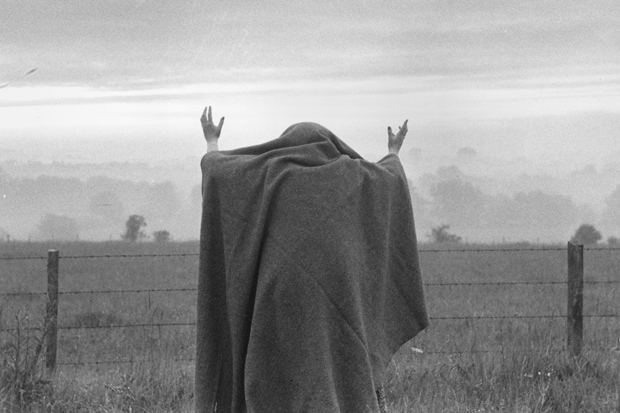The first pagan temple to be built in Iceland for a thousand years has just been granted planning permission, a wonderful bureaucratic detail that shows up just how much this revival is polite make-believe. Ragnar Hairybreeks or Harald Bluetooth would not seek planning permission before building a place of sacrifice. At Gamla Uppsala, the Viking temple site in Sweden, horses were hanged to please the gods in groups of nine from trees, along with cattle, sheep, and human beings. In Reykjavik today’s pagans still eat sacred horsemeat at their feasts, but they buy it in from caterers.
Respectable modern paganism is not only made up, as its leading ideologues cheerfully admit, but made up within a very limited compass of the modern Anglo-American imagination. The most obvious example is Wicca, invented almost entirely by a civil servant, Gerald Gardner, in the 1940s and 1950s, when he lived in Hampshire, although he claimed to have rediscovered a hidden tradition. But even in Scandinavia, where there are still some living elements of old unchristian beliefs, the pagan revival draws on English-speaking models. One self-conscious pagan group in Helsinki had to be told by a visiting sociologist that there was a native Finnish tradition of nature deities: until then they had just read Aleister Crowley.
The religious imagination has always been greedy and creative, stealing from every-thing around it. Look at the Qur’an and the Book of Mormon. The one thing that traditional religions have never done, though, is to be religious. Religion, as a special category of life, is a modern, Protestant invention. Real folk religions just seem like part of life. They aren’t about what people believe, but about what they know, and still more what they do. Elements of that kind of paganism do survive in Sweden: I have friends in Lapland who believe in an entirely unforced way that their farm is guarded by trolls, who are sometimes visible, mischievous but generally friendly. The distinguishing mark of this kind of paganism is that it is so normal and casual.
We know that there are 2,400 pagans in Iceland today because that’s the number who pay their church tax to a pagan organisation. But real, untidy beliefs don’t show up on tax returns, and they are not tidily separated from either religion or daily life. They seep up into the way we approach life and death. The Goddess Temple in Glastonbury has just announced it has become the first pagan temple in England licensed for heterosexual and same-sex weddings. But they are a tiny part of modern British paganism, and weddings are much less significant than funerals here.
This was first obvious in the frenzy around the death of Diana. The flowers and the stuffed toys piled into spontaneous shrines were nothing to do with Christianity or any other organised religion. The Church of England made some feeble effort to appropriate them, but it was obvious that if they did reveal a spiritual hunger, it was one already satisfied. More significant evidence comes from ordinary graves around the country and their bizarre iconography. Linda Woodhead, the leading sociologist of contemporary English religion, once photographed a grave on which there was no cross, just laminated pictures of the emblems of Tottenham Hotspur and Stella Artois, along with some lucky heather. Was that religious or secular, she asked, and concluded that the question makes no sense. It’s no use asking what beliefs these represent: like the flowers and teddy bears, they are just something that people do.
Paganism in this widespread general sense has an important lesson for Christianity. You hear it argued that liberal religion declined because it lets people believe anything, when in fact they want clear judgments. But there is lots of biblical teaching, from the condemnation of adultery to the duty of hospitality to asylum seekers, which the churches are very clear about and which simply makes them unpopular. What successful churches have is not demanding doctrine but demanding practices, rituals and observances which saturate everyday life. That’s what New Agery offers, with its crystals and cleansings. It’s what charismatic Christianity and folk Islam both provide. But the nearest approach to a widespread folk religion in this country is neither of these. Nor is it the paganism of the druids or the Pagan Federation. If you want to see mass rituals carried out purely for their own sake, and symbolism invoked on all the great occasions of life, it isn’t what goes on in Glastonbury. It’s bloody football.






Comments